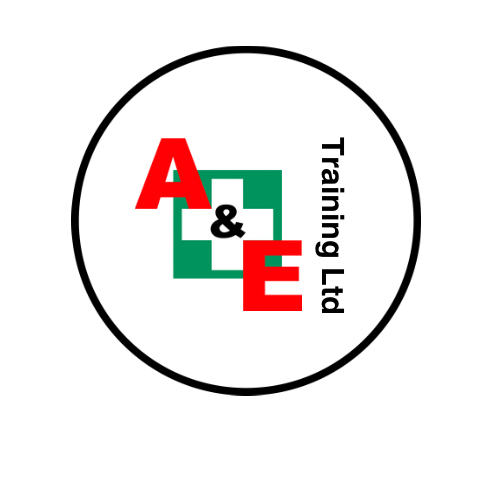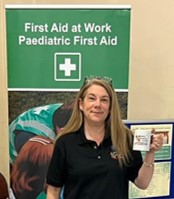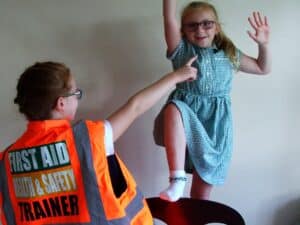Do you or your company CARE?
Support Mental Health in Your Workplace
C-Check
A-Apply
R-Reassure
E-Encourage
Next week is National Mental Health week with the 10th Oct Being National Mental Health Day.
Why not plan training for you or your staff.
Each year approximately 1 in 4 people in the UK will experience a mental health condition and at least 1 in 6 employees
experience common mental health problems in the workplace such as anxiety and depression. Research has shown that
work is the biggest cause of stress which can stop people performing at their best.
Mental health conditions are often hidden due to stigma and fear of discrimination and research found that a culture of
fear and silence around mental health is costly to employers. The HSE guidance ‘First aid needs assessment’ refers to
mental health in the workplace
We offer three courses…
1/2 Day Mental Health Awareness.
Level 1 Award in Awareness of First Aid for Mental Health (4.5 hours)
This qualification provides learners with the knowledge to recognise a range of mental health conditions, start a
supportive conversation, and when and how to signpost someone to professional help. Learners will learn how to
recognise and manage stress.
Learners will not diagnose or treat mental health conditions as this can only be carried out by healthcare professionals,
but will be able to identify when a person may have a suspected mental health condition, offer reassurance and
support, and know where they can go to get help.
This qualification is regulated in the UK and awarded by First Aid Awards (FAA).
FAA are an awarding organisation regulated by Ofqual and SQA Accreditation and the qualification sits on the
Regulated Qualifications Framework (RQF) and the Scottish Credit and Qualifications Framework (SCQF).
ENTRY REQUIREMENTS
The qualification is available to learners aged 14 or over.
It is recommended that learners hold a minimum of level 1 in literacy or equivalent to undertake this qualification.
It may be possible to grant a reasonable adjustment for a learner who has a disability, medical condition or learning
need following the FAA Reasonable Adjustment and Special Consideration Policy. For example, assistance could be
given with reading or writing during a classroom-based assessment.
Due to the level of unsupervised learning, a learner undertaking a distance learning course must have the literacy skills
to complete the required self-study.
If a learner has any concerns they should contact us to discuss before attending the course.
1 Day Mental Health First Aider.
The FAA Award in First Aid for Youth Mental Health qualification is suitable for anyone who actively connects with
children and young people such as parents, carers, teachers, youth group leaders and young adults.
The qualification has been designed with children and young people in mind covering areas such as depression, self
harm, eating disorders and bullying and will provide the knowledge to recognise a range of mental health conditions,
start a supportive conversation, and provide guidance to professional help. Learners will learn how to recognise and
manage stress.
Learners will learn about the first aid action plan for mental health and be able to put the plan in place.
Learners will not diagnose or treat mental health conditions as this can only be carried out by healthcare professionals,
but will be able to identify when a young person may have a suspected mental health condition, offer reassurance and
support, and know where they can go to get help.
This qualification is regulated in the UK and awarded by First Aid Awards (FAA).
FAA are an awarding organisation regulated by Ofqual and SQA Accreditation and the qualification sits on the
Regulated Qualifications Framework (RQF) and the Scottish Credit and Qualifications Framework (SCQF).
ENTRY REQUIREMENTS
The qualification is available to learners aged 14 or over.
It is recommended that learners hold a minimum of level 1 in literacy or equivalent to undertake this qualification.
It may be possible to grant a reasonable adjustment for a learner who has a disability, medical condition or learning
need following the FAA Reasonable Adjustment and Special Consideration Policy. For example, assistance could be
given with reading or writing during a classroom-based assessment.
Due to the level of unsupervised learning, a learner undertaking a distance learning course must have the literacy skills
to complete the required self-study.
If a learner has any concerns they should contact us to discuss before attending the course.
2 Day Supervising Mental Health
This qualification provides learners with the knowledge to recognise a wide range of mental health conditions and learn
about the support/therapy provided by professional healthcare providers. They will know how to start a supportive
conversation and when and how to signpost a person to seek appropriate professional help. Learners will recognise and
manage stress and understand the impact of substance abuse.
Learners will learn about the first aid action plan for mental health, be able to put the plan in place, and understand how
to implement a positive mental health culture in the workplace.
Learners will not diagnose or treat mental health conditions as this can only be carried out by healthcare professionals,
but will be able to identify when a person may have a suspected mental health condition, offer reassurance and
support, and know where they can go to get help.
This qualification is regulated in the UK and awarded by First Aid Awards (FAA).
FAA are an awarding organisation regulated by Ofqual and SQA Accreditation and the qualification sits on the
Regulated Qualifications Framework (RQF) and the Scottish Credit and Qualifications Framework (SCQF).
ENTRY REQUIREMENTS
The qualification is available to learners aged 16 or over.
It is recommended that learners hold a minimum of level 1 in literacy or equivalent to undertake this qualification.
It may be possible to grant a reasonable adjustment for a learner who has a disability, medical condition or learning
need following the FAA Reasonable Adjustment and Special Consideration Policy. For example, assistance could be
given with reading or writing during a classroom-based assessment.
Due to the level of unsupervised learning, a learner undertaking a distance learning course must have the literacy skills
to complete the required self-study
Email to Book [email protected]






